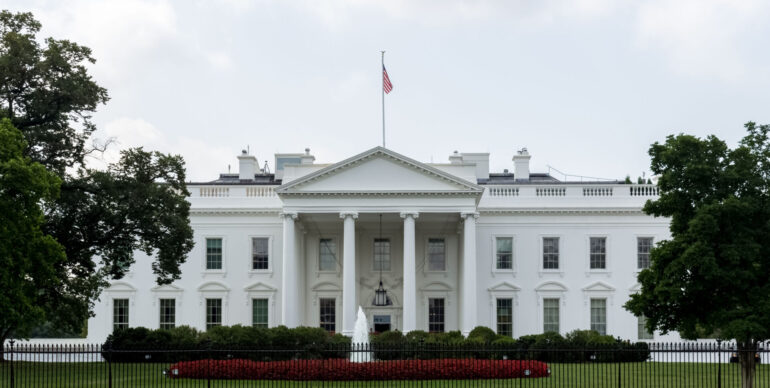US President Donald Trump’s announcement of new tariffs on imports from several nations, including a 10% tariff on UK goods, has sparked strong reactions from industry experts and economic analysts.
The policy, which aims to protect American manufacturers and boost its economy, has been met with skepticism and concern regarding its wider, global economic impact.
Kristian Niemietz, editorial director at the Institute of Economic Affairs (IEA), criticised the tariff strategy, stating that it was a “complete random mess.”
He argued that any attempts to counter Trump’s trade policy with retaliatory measures would be ineffective and ultimately harm domestic consumers.
Niemietz added: “Trump’s economic folly is bad enough as it is.
“If other governments now respond with similarly foolish retaliatory measures, it would only compound Trump’s errors.”
He warned that American consumers would bear the cost of these tariffs, and retaliatory measures from other nations would only increase the burden on their own citizens.
“The only rational response to such an irrational policy is to ignore it, treat it as a write-off, keep calm and carry on,” he concluded.
Mark Eaton, chief operating officer at April Mortgages, warned that Trump’s trade war could have lasting effects on the UK economy and household finances.
He explained: “Markets have been thrown into a tailspin by the announcement of fresh import taxes on goods entering the US, and it’s creating huge economic uncertainty for central banks.”
Eaton also noted the potential impact on interest rates.
He said: “Fears that these new tariffs will hurt UK trade and growth may increase the prospect of the Bank of England cutting interest rates in May.
“But there are also concerns that inflation may rise as businesses on both sides of the pond put up prices to deal with increased taxation.”
He urged caution for borrowers, emphasising that choosing a longer-term fixed rate mortgage would provide stability in uncertain times.
Amy Knight, small business expert at NerdWallet UK, highlighted the potential ramifications for UK small business owners.
She said: “In response to scary economic news, consumers take protectionist measures of their own – saving more and spending less.
“The household savings ratio rose in 2024, reflecting how nervous consumers have been about using their disposable income.”
Knight warned that while the UK economy is less vulnerable to tariffs due to its service-based structure, UK exporters would feel the immediate effects.
She added: “The anticipated economic slowdown would be a huge blow for smaller businesses trying to grow and for micro enterprises just trying to stay afloat.
“Consumers and investors, whose confidence was already shaky, have been further rattled by rumoured price fluctuations.
“If inflation heats up as feared, the Bank of England will do their best to stop it boiling over by holding interest rates above 4%, or putting them back.
“This not only makes debt more expensive for businesses, but more costly borrowing leaves consumers with less to spend, slowing growth.”
Addressing job security, Knight cautioned that decreased demand for British products in the US market could severely impact employment.
She continued: “Workers in the steel, manufacturing, and automotive industries may be the most vulnerable, unless Jonathan Reynolds can negotiate a trade deal with Trump to save these sectors.
Additionally, she pointed out that many UK SMEs have already planned to cut jobs due to increasing employer costs, and new tariffs could force further layoffs.
George Holmes, managing director of Aurora Capital, agreed with this view, further emphasising the potential financial strain on UK small businesses.
He added: “The new US tariffs are a blow for UK small businesses that rely on transatlantic trade, especially those in sectors like automotive, steel, and whisky.”
Holmes noted that while UK tariffs are lower than those imposed on the EU, the impact on SMEs remains significant.
He said: “The whisky industry, for example, is already warning that the new tariffs could cost hundreds of millions annually.
“Small distilleries that rely on exporting to the US could face significant financial strain, potentially needing to scale back operations or hike prices>”
To cope with these new trade barriers, Holmes suggested that businesses might need to seek external financing.
“It’s important for lenders and financial institutions to step up with practical support and flexible solutions during this period”, he noted.
“With the right financial backing and support, SMEs can adapt and stay resilient despite these new challenges.”




